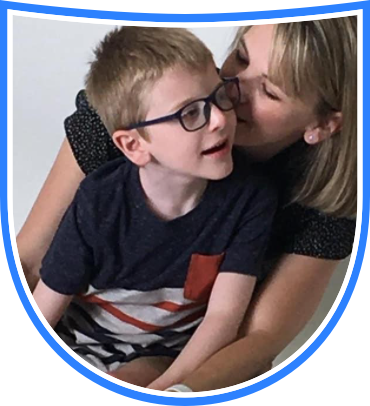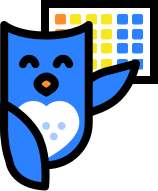
At Angelman Academy our chief mission is to revolutionize the education of individuals with Angelman syndrome to allow them to reach their fullest potential. The primary way we do this is by providing learning opportunities to inform and empower caregivers and professionals to become experts in teaching individuals with Angelman syndrome.
Free Webinars and Videos
Behavioral and Anxiety concerns in Angelman Syndrome
Intro to AAC
Getting started with AAC: Motivate, Model, and Move Out of the Way
Visual Supports and Video Models for AAC
Angelman Syndrome, Apraxia, Anxiety, and AAC
Gaining Language: What to Consider and How to Start
Q&A about AAC Systems / Preguntas sobre SAACs
We speak with Alicia García, speech language and AAC specialist. She answers the most common questions from families who started implementing AAC systems. Also give us answers to help those families who already have an AAC system defined, but have doubts on their implementation. On this Q&A video, Alicia give us tips and guidelines for better implementing and support AAC users and their families on AAC systems. (Video In Spanish)
---Charlamos con Alicia García, terapista del lenguaje y especialista en Sistemas de Comunicación, nos responde a las preguntas más comunes de familias que inician con CAA y esas preguntas de quienes ya tienen un sistema elegido y tienen dudas de su implementación. En este intercambio de preguntas y respuestas, Alicia nos da tips y pautas para implementar mejor y para apoyar a los usuarios (y sus familias) de los SAACs.
Q&A about the ACES-ICT - inclusion program
Questions and answers about the Academic Career and Essential Skills-Integrated Collaborative Teaching (ACES-ICT) inclusion program. The innovative program was launched in New York City in 2018. Angelman Academy chats with parent Eve Colavito and teachers Catherine Lipkin and Rachel Marks. We talked about inclusion-what it means to them and how it looks in the classroom setting as well as how the program has continued to support children with Angelman Syndrome during a pandemic year! They share their lessons and experiences on the project, and recommendations about how other families can replicate this model in their own school districts.
FAST Educational Summit Videos
Which Way to Autonomous Communication? - Part 1
Gayle Porter
Which Way to Autonomous Communication? Part 2
Linda Burkhart
Literacy and language Hand in Hand
Jane Farrall
Emergent Writing From Form to Function
Jane Farrall
Literacy 101: Empowering Families!
DR. CAROLINE MUSELWHITE
Literacy in Angelman Syndrome
Dr. Gretchen Hanser
Making Sense of Sensory Processing
Kelly Beins
Supporting Inclusion Panel
Angelman Parents
Inclusion: Strategies for Increasing Success!
DR. CAROLINE MUSELWHITE
Reframing Angelman Syndrome
Mary-Louise Bertram
